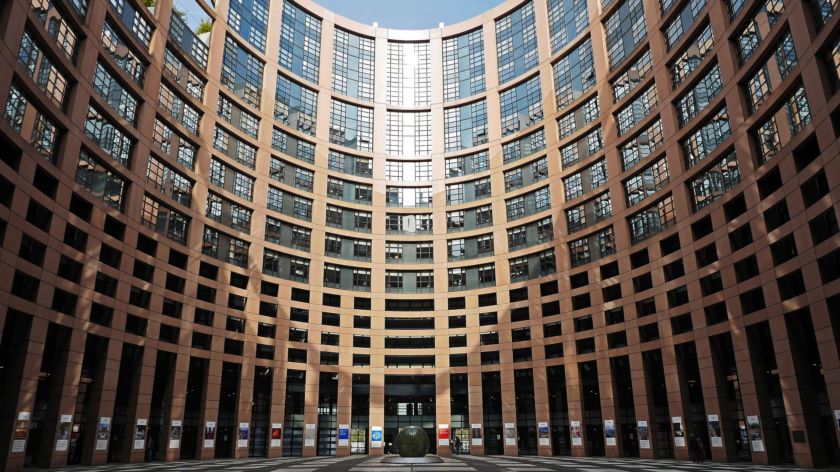Why students must vote in the European elections
-
 Het Europees Parlement. Foto: hpgruesen (Pixabay)
Het Europees Parlement. Foto: hpgruesen (Pixabay)
The Provinciale Staten (provincial council) elections have only just finished and already we have to go back to the polling stations. This time for the European Union, on 23 May. Why is this important for students?
During the last elections in 2014, 18 percent of young people made the effort to go and vote. ‘That really is very few,’ says Anna van der Vleuten, professor of Contesting Europeanization at Radboud University. ‘And yet there is plenty to choose from and the EU is a much-discussed topic.’
Not decisive
‘There is a lot of focus on the EU in the media, especially since Brexit,’ says Van der Vleuten. ‘It’s made people more interested in politics and given them a feeling that their vote actually makes a difference.’ In the Brexit referendum, many young people voted remain, but because of the low turnout among their peers, it was not decisive.
Would you like to know what the national parties have to offer students at a European level? Our colleagues at Univers in Tilburg searched out the most important points in terms of education in the various European electoral programmes.
According to Van der Vleuten, previous European election campaigns almost solely concerned national matters. ‘That doesn’t give citizens the impression that the EU has much influence.’ But all that is different now, with campaigns aimed at encouraging young people to vote, a special voting advice application for young people and the ‘Grote Europashow’ in Paradiso in Amsterdam. And Radboud University is organising an electoral lecture for students on 13 May.
Van der Vleuten: ‘As far as students are concerned, it’s about more than just whether you are for or against Europe. No-one’s asking whether you are for or against democracy, are they? Many problems are just too big to be solved at a national level, but still really important, particularly to young people. Take climate change, for example.’
‘No-one’s asking whether you are for or against democracy, are they?’
According to Van der Vleuten, the British are beginning to realise that a huge number of matters are now at risk, certainly for students. Take for example diplomas that will no longer be acknowledged everywhere and studying abroad, which will be much more difficult. ‘Many young people see it as almost self-evident that they can travel freely and pay everywhere with the same currency.’
Employment market
The Erasmus Programme is well-known among students, but the EU is also responsible for the internationalisation of the employment market, in part to reduce unemployment among young people. Many diplomas are currently automatically acknowledged throughout all of Europe and the EU makes grants of up to 18,000 euros available to Master’s students.
So, there are plenty of important themes. But the call to organise as many matters as possible at a national level is being heard louder and louder, all across Europe, even from the more moderate parties. Van der Vleuten expects this trend to continue. All the more reason to vote on Thursday, the professor believes.
Four things the EU does for students
#1 Erasmus+
The EU’s showpiece. Since the programme was set up, more than five million students have studied abroad through the Erasmus Programme. Numbers are even set to triple from 2020.
#2 Fair internship remuneration
Unpaid internships at the European Parliament will be forbidden from July. This is the parliament giving a clear signal that internships should be properly remunerated everywhere. A proposal by the European Commission aimed at realising this has already been tabled, but still has to be approved by the member states.
#3 Free Interrail
Thousands of Interrail passes were issued to 18-year-olds last year through DiscoverEU. A whole month travelling through Europe, free! Who wouldn’t want to do that?
#4 European solidarity corps
Only just founded. An initiative that will give young people the opportunity of carrying out voluntary work throughout Europe, ranging from environmental and social work to helping migrants.



